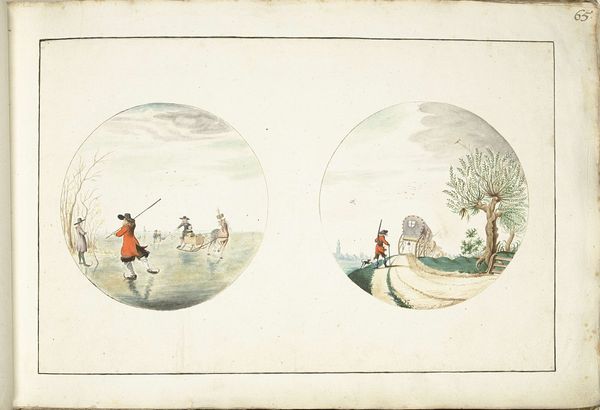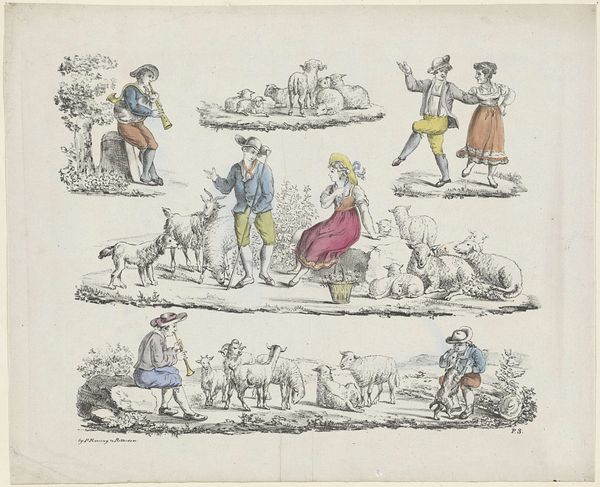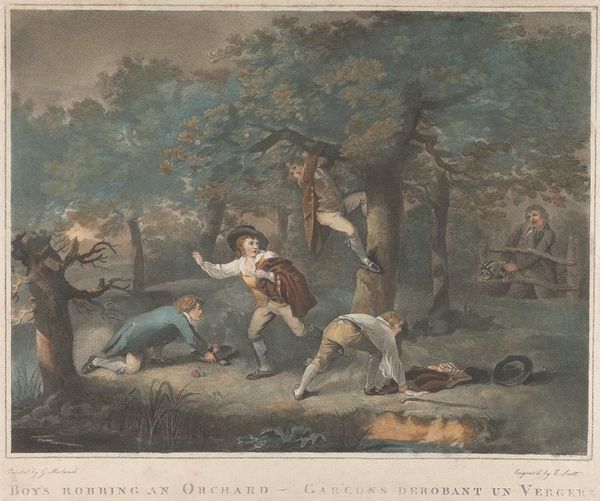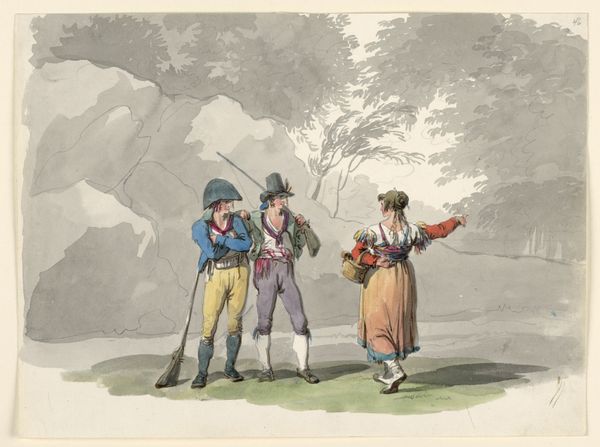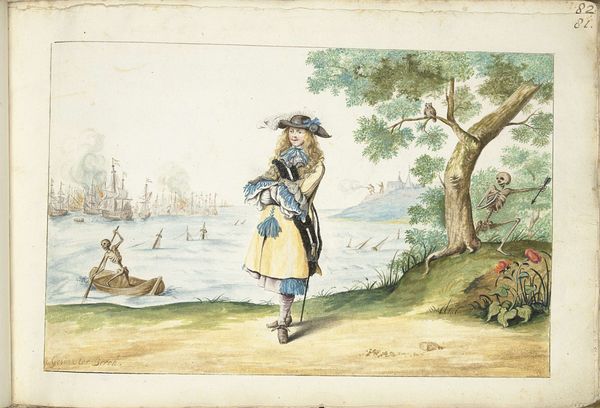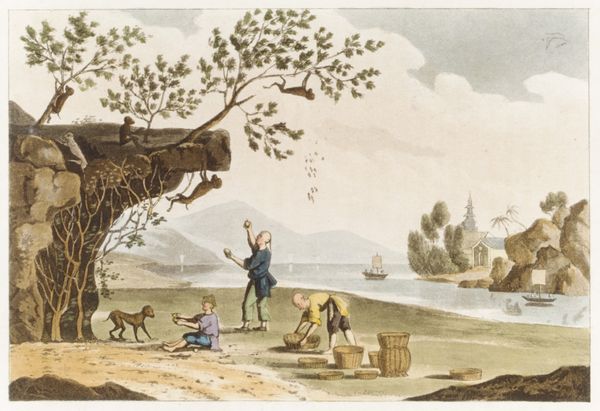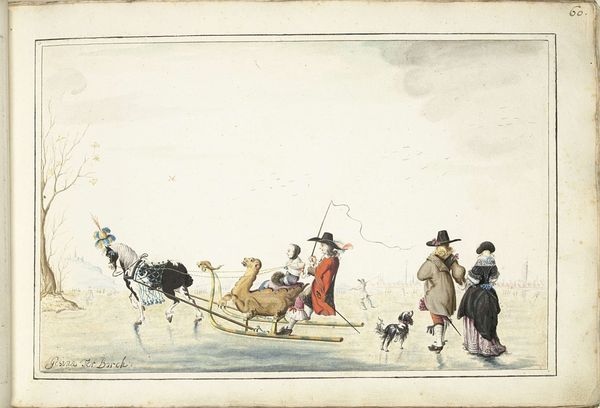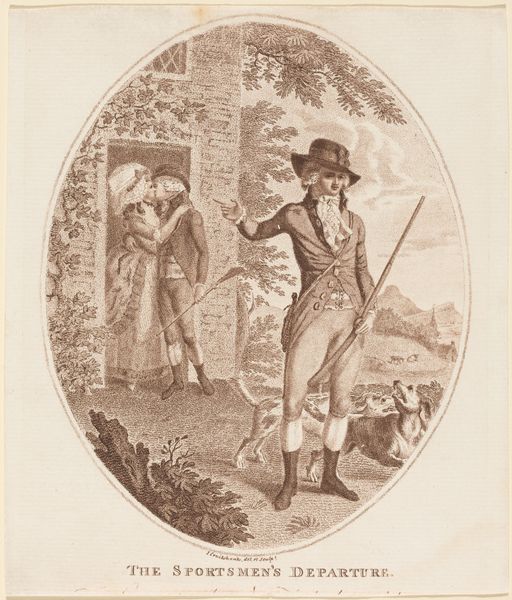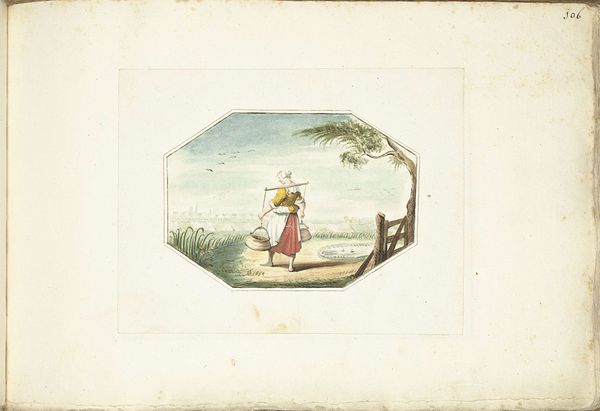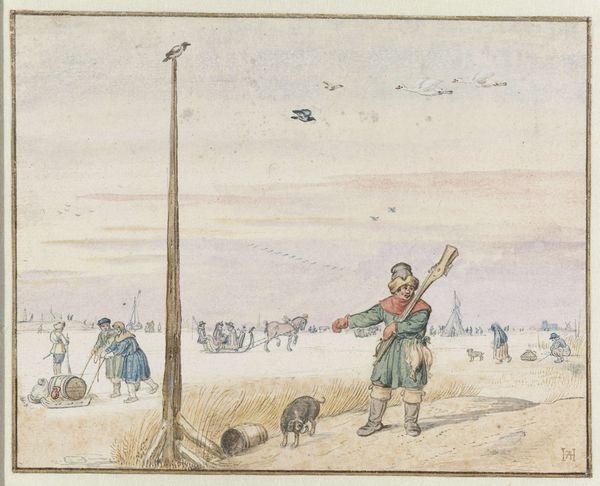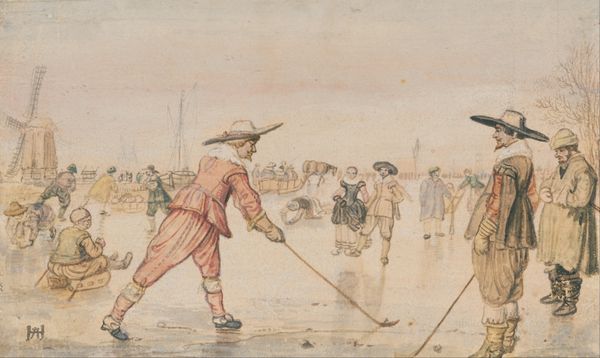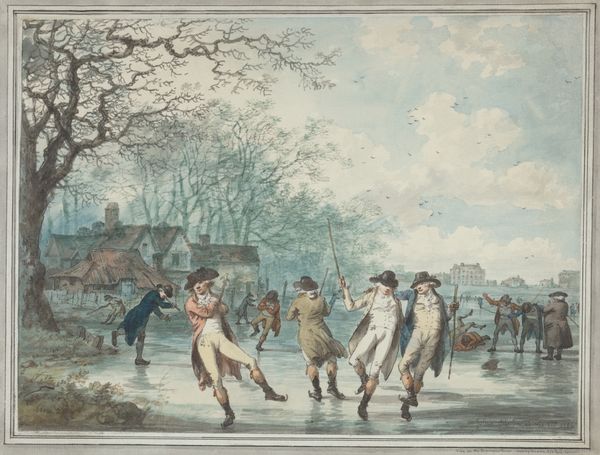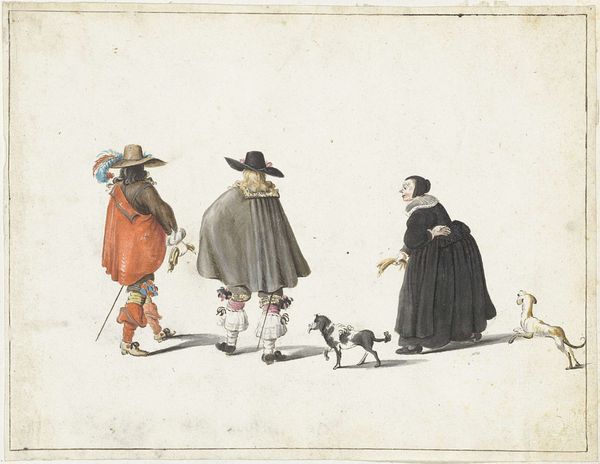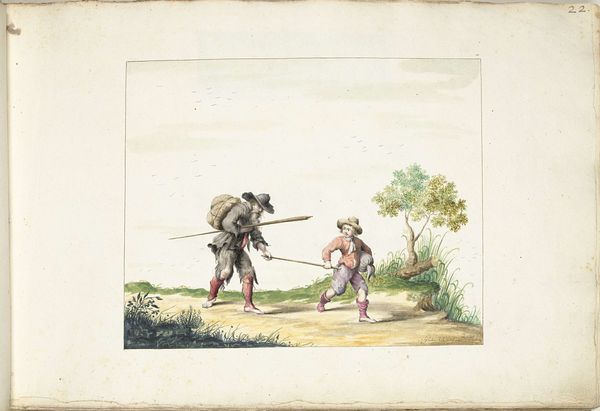
drawing, watercolor
#
drawing
#
dutch-golden-age
#
landscape
#
figuration
#
watercolor
#
coloured pencil
#
genre-painting
#
watercolor
Copyright: Rijks Museum: Open Domain
Editor: Here we have Gesina ter Borch's "Winter: vermaak op het ijs," made around 1655 using watercolor and drawing techniques. It's a charming winter scene. I’m curious – what aspects of the image strike you most prominently? Curator: As a materialist, I see a direct connection to Dutch society here. Ter Borch is representing leisure – specifically, the commodification of leisure time during the Golden Age. What can be observed is that art functions within that society to reflect it, and to solidify its own standing through portraiture and landscape. Look at the use of watercolor, which enabled Ter Borch to produce multiple copies relatively quickly and cheaply. How does that affect your understanding of the image? Editor: So, the material properties enabled broader consumption and, potentially, a wider audience beyond the elite? I hadn’t considered that! Curator: Precisely. Think also about the pigment sources themselves. Where did the blues and reds come from? Trade routes dictated accessibility. The choice to depict the pastimes of everyday people normalizes the growing mercantile class in Dutch Society. And note the labor involved - someone had to create that paper, produce and sell those pigments. The "lowly" status of 'drawing' becomes quite interesting within this context. Editor: It’s amazing to consider the socio-economic forces at play behind what appears, at first glance, a simple genre scene. I hadn't fully appreciated the impact that materials themselves have in mediating art history! Curator: Right. And those choices and processes were always deeply connected to economic factors, social classes and labor involved, which makes these drawing speak far beyond of an innocent scene on ice.
Comments
No comments
Be the first to comment and join the conversation on the ultimate creative platform.
